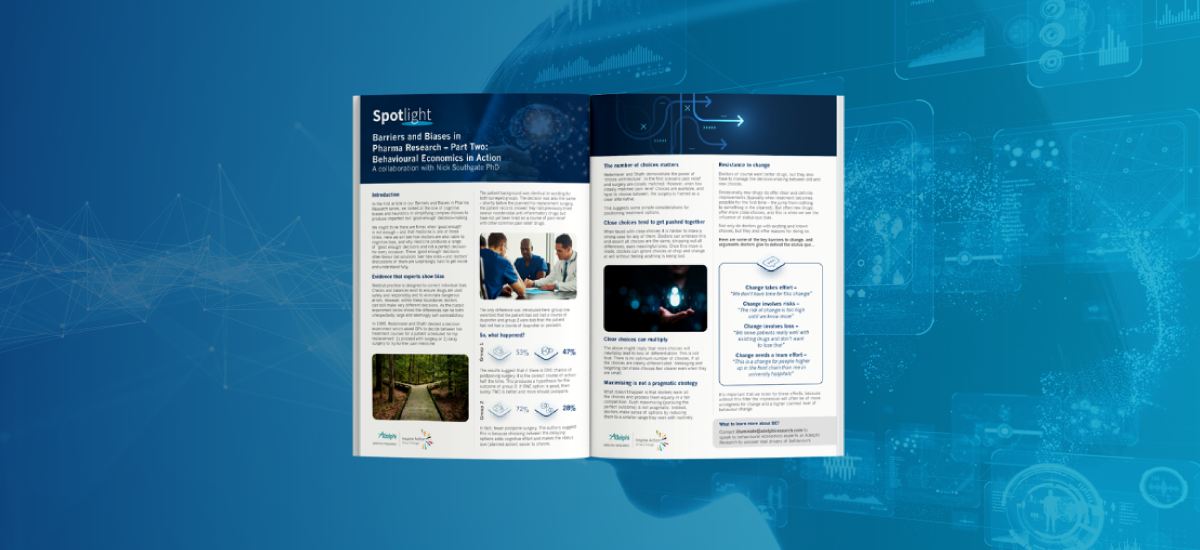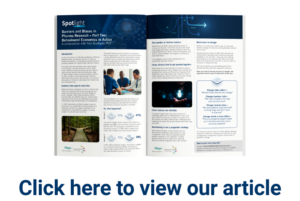
In the first article in our Barriers and Biases in Pharma Research series, we looked at the role of cognitive biases and heuristics in simplifying complex choices to produce imperfect but ‘good enough’ decision–making.
We might think there are times when ‘good enough’ is not enough – and that medicine is one of those times. In our latest paper we discuss how doctors are also liable to cognitive bias, and why medicine produces a range of ‘good enough’ decisions and not a perfect decision for every occasion. These ‘good enough’ decisions often favour old solutions over new ones – and doctors’ discussions of them are surprisingly hard to get inside and understand fully.
View our white paper which discusses how experts show bias and how the number, closeness and clarity around choices makes a marked difference. It also raises considerations around resistance to change and problems around post-rationalisation.

